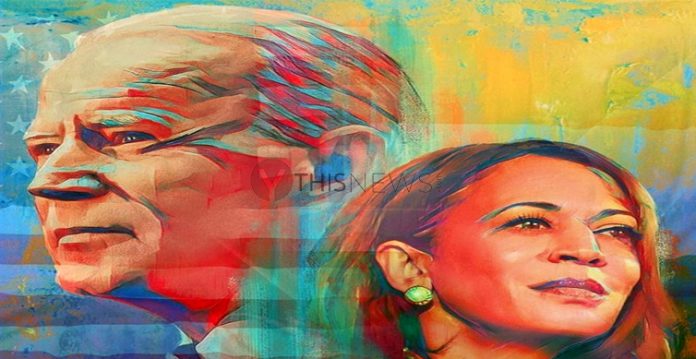Joe Biden and Kamala Harris win in the US elections 2020 for the President and Vice President respectively have garnered tremendous attention from the Indians and Indian-Americans alike. The reason for this is a set of issues that can possibly be solved through the Democratic government.
Under the leadership of Donald Trump, the now-ex President of the US, India shared great terms with the country due to the chief’s “friendship” with the Prime Minister of India, Narendra Modi. They even held special visits for each other in their countries with a celebration full of pomp and show.
While the downfall of Trump may have burnt this budding friendship to ashes, India has hope for a reformation of its own laws, which were condemned by Biden earlier during his election speech.
Following Modi’s policies of CAA allowing people of almost all faiths, except Islam, around the world to take citizenship of India, scrapping of article 370 in Kashmir revoking their special status, series of alleged violence against Muslims of the country and the suppression of the voice of dissent, people around the world have seen this as major discriminatory moves.
Criticizing the inclusions of the CAA, Biden has said in his statement these are “inconsistent with the country’s long tradition of secularism and with sustaining a multi-ethnic and multi-religious democracy.” Both he and Kamala have actively spoken out against the violation of Human Rights so publicly performed in India.
However, Biden also called India a partner in eradication terrorism from the world. In his speech of strengthening bonds between the two countries, he said, “The U.S. and India will stand together against terrorism in all its forms and work together to promote a region of peace and stability where neither China nor any other country threatens its neighbors.”
While under Trump’s rule, a game of ‘live and let live’ was played between US and India as both practiced their strategies and implementations without the other batting an eye. As Trump gave a deaf ear to the cries of the activists in India, Modi did his part by not interfering in the atrocities being carried out in the US due to racism. This mutually benefitting friendship was used by Trump in his reelection campaigns through the feature of Modi, for attracting the votes of Indian-Americans. On the other hand, Modi showcased it as the rise of India on the global platform.
Even though Biden has condemned the discriminatory policies of India, experts say US would only intervene in the matters till a “specific point” as it won’t go beyond it.
In his Agenda for Muslim Americans, Biden went on to urge the Indian government to “restore the rights for all people of Kashmir” and to stop preventing protests and shutting down of internet as the acts “can weaken the democracy”.
Ms. Harris has been more vocal about the issues and conveyed her support to the Kashmiris telling them that “they are not alone”. Further hinting at the possible moves of the US into this matter, she said if the situation demands it, “there is a need to intervene.”
However, experts claim that after coming into power, Biden is not likely to publicly speak out against the Indian policies as he knows the repercussions of no apparent change being witnessed if he continues it.
Tanvi Madan, director of the India Project at the Brookings Institution says, “The Biden team understands that lecturing India publicly or threatening it publicly will not go down well, and will not achieve any change that they want to see. I suspect you might have a Biden Administration that is more likely to bring these issues up privately. But I think publicly, you’ll see a continuation of what we saw both Obama and Trump do, which is alluding to these issues through talking about the importance for the world of India as a diverse, tolerant democracy.”
Then come to the prevailing India-China tensions, which take new strides every day. The rising issues at the border that also led to the killing of 20 Indian soldiers and 35 Chinese, with conflicting numbers from each country, mean a whole different thing now for India. If Biden now tries to release a little pressure from China to go after Russia, the problems for India may surge as it holds good relationships with Russia.
Under his vice-presidency, Biden had a major role in creating the pathway for the Indo-U.S. civil nuclear deal. He also encouraged the increasing bilateral trade business to $500 billion annually.
Moving to Kamala Harris, the first black woman and the first woman to hold the position of a Vice President at the White House infamously has her roots in the Tamil Nadu state of India. Being born to an Indian mother and a Jamaican father, the VP-elect has left Indians believing she will take a stand in the issues of India.
With the second politically most important person of America having an Indian descent, Indians are unsurprisingly looking up to her and expecting the woman to support or be more outspoken on certain issues concerning India. The same has already gained momentum as some Indian-Americans had begun an email campaign in October requesting the VP-elect to take action in the horrendous rape case of the 19 yr old Dalit girl in UP.
The recent restrictions brought out in the H1-B visas by Trump are also expected to change in Biden and Harris rule, which ultimately means a big thumb’s up for professional Indian workers wishing to practice in the US.







